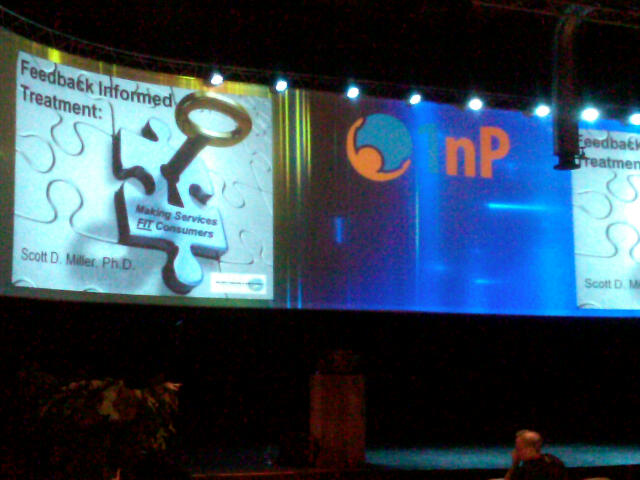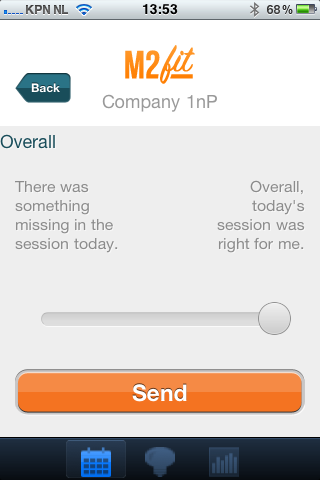What is evidence-based practice? Visit the UK-based NICE website, or talk to proponents of particular theoretical schools or therapeutic models, and they will tell you that being “evidence-based” means using the approach research has deemed effective for a particular diagnosis (e.g., CBT for depression, EMDR for trauma). Over the last two decades, numerous organizations and interest groups have promoted lists of “approved” treatment approaches–guidelines that clinicians and funding bodies should follow when making practice decisions. Throughout the 1990’s, for example, division 12 within the American Psychological Association (APA) promoted the idea of “empirically supported treatments.”
However, when one considers the official definition of evidence-based practice offered by the Institute of Medicine and the APA, it is hard to fathom how anyone could come to such a conclusion. According to the APA, evidence-based practice is, “the integration of the best available research with clinical expertise in the context of patient characteristics, culture, and preferences.” (see American Psychologist, May 2006). Nothing here about “empirically supported treatments” or the mindless application of specific treatment protocols. Rather, according to the APA and IOM, clinicians must FIT the treatment to the client, their preferences, culture, and circumstances. And how can one do that? Well, conspicuously absent from the definition is, “consult a set of treatment guidelines.” Rather, when evidence-based, clinicians must monitor “patient progress (and of changes in the patient’s circumstances—e.g.,job loss, major illness) that may suggest the need to adjust the treatment. If progress is not proceeding adequately, the psychologist alters or addresses problematic aspects of the treatment (e.g., problems in the therapeutic relationship or in the implementation of the goals of the treatment) as appropriate.”
The principles and practices of feedback-informed treatment (FIT) are not only consistent with but operationalize the American Psychological Association’s (APA) definition of evidence-based practice. To wit, routinely and formally soliciting feedback from consumers regarding the therapeutic alliance and outcome of care and using the resulting information to inform and tailor service delivery. And indeed, over the last 9 months, together with Senior Associates, I completed and submitted an application for FIT to be reviewed by NREPP–SAMSHA’s National Registry of Evidence-based Practices and Approaches! As part of that application and ICCE’s commitment to improving the quality and outcome of behavioral health, we developed a list of “core competencies” for FIT practice, a series of six detailed treatment and implementation manuals, a gap assessment tool that organizations can use to quickly and expertly assess implementation and fidelity problems, and supportive documentation and paperwork. Finally, we developed and rigorously tested training curricula and administered the first standardized exam for certifying FIT practitioners and trainers. We are in the final stages of that review process soon and I’m sure I’ll be making a major announcement right here on this blog shortly. So, stay tuned.
In the meantime, this last Saturday, clinicians located the globe–Canada, New Zealand, Australia, the US,a nd Romania–sat for the first administration of ICCE “Core Competency” Exam. Taking the test is the last step in becoming an ICCE “Certified Trainer.” The other requirements include: (1) attending the “Advanced Intensive” and “Training of Trainers” workshops; and (2) submitting a training video on FIT for review. The exam was administered online using the latest technology.


.jpg)


.jpg)
The members, directors, and senior associates of ICCE want to congratulate (from top left):
- Eeuwe Schuckard, Psychologist, Wellington, New Zealand;
- Aaron Frost, Psychologist, Brisbane, Australia;
- Cindy Hansen, BA-Psych, HHP, Manager Myoutcomes;
- David Prescott, Director of Professional Development, Becket Family of Services, Portland, Maine;
- Arnold Woodruff, LMFT, Clinical Director, Home for Good, Richmond, Virginia;
- Bogdan, Ion, Ph.D., Bucharest University, Bucharest, Romania;
- Daniel Buccino, Clinical Supervisor, Community Psychiatry Program. Johns Hopkins;
- Dwayne Cameron, Outreach Counselor, Prince Albert, Saskatoon, Canada;
- Mark Goheen, the Clinical Practice Lead at Fraser Health, British Columbia.
If you are not yet a member of the ICCE community, please join the largest, fastest growing, and friendly group of behavioral health professionals today at: www.centerforclinicalexcellence.com.


(5).jpg)


